|
Anthropology in the News
|
|
||||||||||||||||||||||||||||||||||
 "Palermo,Sicily Italy |
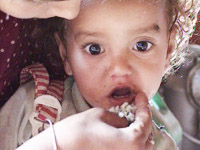 A Fistfull of Rice Nepal |
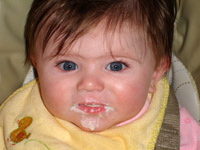 Claire Kathleen Roufs U.S.A. |
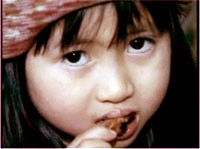 "Eating Rat At The New Year" Vietnam National Geographic |
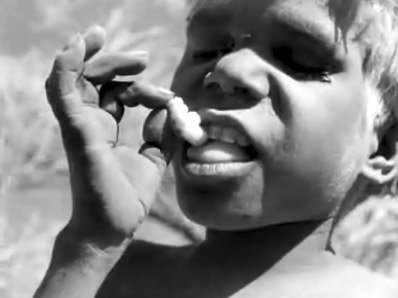 Desert People Australia |
We Feed the World(96 min., CC, 2005, DVD 1330) "Vividly reveals the dysfunctionality of the industrialized world food system and shows what world hunger has to do with us. Includes interviews with fishermen, farmers and drivers, as well as Jean Ziegler of the UN, Karl Otrok of seed manufacturer Pioneer, and Peter Brabeck of Nestle International." We feed the World -- Google Videos We Feed the World (German) -- YouTube See also Our Daily Bread Wikipedia: |
|||||
 |
|||||
|
Scenes from |
Scenes from |
||||
Scenes
|
Description 96 minutes DVD-R version, Color / Stereo Closed Captioned Grade Level: 10-12, College, Adult US Release Date: 2007 Copyright Date: 2005 ISBN (DVD): 1-59458-652-7 Directed by Erwin Wagenhofer Produced by Helmut Grasser, Allegrofilm Photography - Erwin Wagenhofer Sound - Helmut Junker Supported by Österreichisches Filminstitut Filmfonds Wien Close to a billion of the nearly seven billion people on Earth are starving today. But the food we are currently producing could feed 12 billion people. This is a film about food and globalization, fishermen and farmers, the flow of goods and cash flow -- a film about scarcity amid plenty.
These distressing questions are addressed as filmmaker Erwin Wagenhofer travels from Austria to Brazil, France to Romania to interview Jean Ziegler, the United Nations Special Rapporteur on the Right to Food, CEOs and directors of the world's largest food companies, agronomists, biologists, fishermen, farmers and farmworkers. On a daily basis, in Vienna alone, enough left-over bread to supply a small city is destroyed. The planet has enough production power to feed everyone, but 800 million people suffer from hunger. What does world hunger have to do with us? |
"What does world hunger have to do with us?" In a word: EVERYTHING. We Feed the World is an award-winning, visually stunning, globe-trotting expose of our modern agricultural system. From struggling fishermen and long-distance truckers, to agronomists and multi-national corporate executives, We Feed the World presents a sobering portrait of the people who define the contemporary food industry, where the constant pursuit of profit takes precedence over the health of the workers, the hungry, and the environment." |
"Every day in Vienna the amount of unsold bread sent back to be disposed of is enough to supply Austria's second-largest city, Graz. Around 350,000 hectares of agricultural land, above all in Latin America, are dedicated to the cultivation of soybeans to feed Austria's livestock while one quarter of the local population starves. Every European eats ten kilograms a year of artificially irrigated greenhouse vegetables from southern Spain, with water shortages the result." "In WE FEED THE WORLD, Austrian filmmaker Erwin Wagenhofer traces the origins of the food we eat. His journey takes him to France, Spain, Romania, Switzerland, Brazil and back to Austria." "Leading us through the film is an interview with Jean Ziegler, the United Nations Special Rapporteur on the Right to Food." "WE FEED THE WORLD is a film about food and globalisation, fishermen and farmers, long-distance lorry drivers and high-powered corporate executives, the flow of goods and cash flow–a film about scarcity amid plenty. With its unforgettable images, the film provides insight into the production of our food and answers the question what world hunger has to do with us." "Interviewed are not only fishermen, farmers, agronomists, biologists and the UN's Jean Ziegler, but also the director of production at Pioneer, the world's largest seed company, as well as Peter Brabeck, Chairman and CEO of Nestlé International, the largest food company in the world." |
|
|
|
DVD version with special features available - see below
Color / Stereo
Closed Captioned
Grade Level: 10-12, College, Adult
US Release Date: 2007
Copyright Date: 2005
ISBN (VHS): 1-59458-651-9
ISBN (DVD): 1-59458-652-7
We Feed the World catalog information
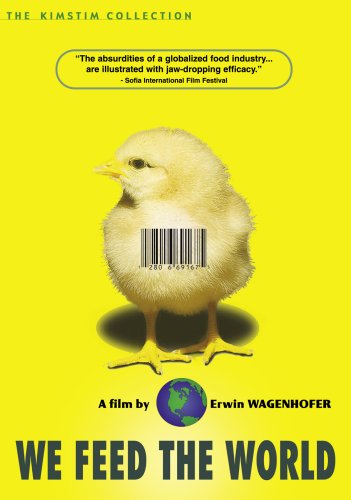 |
|
 Page URL: http:// www.d.umn.edu /cla/faculty/troufs/anthfood/video/We_Feed_the_World.html Site Information |
||
View Stats |
|